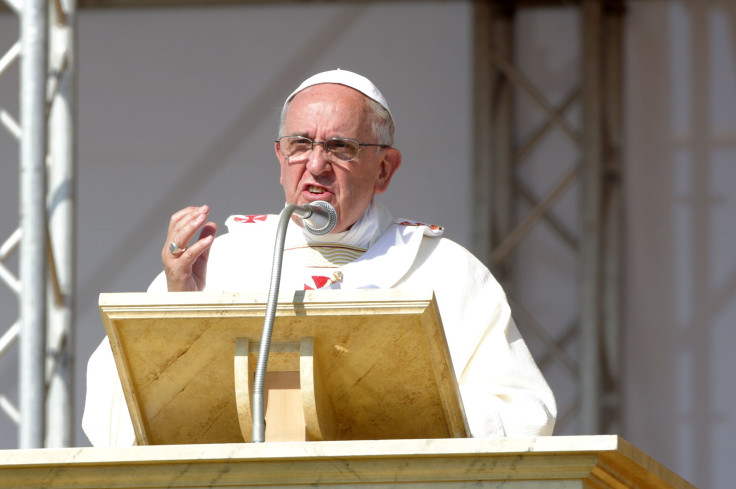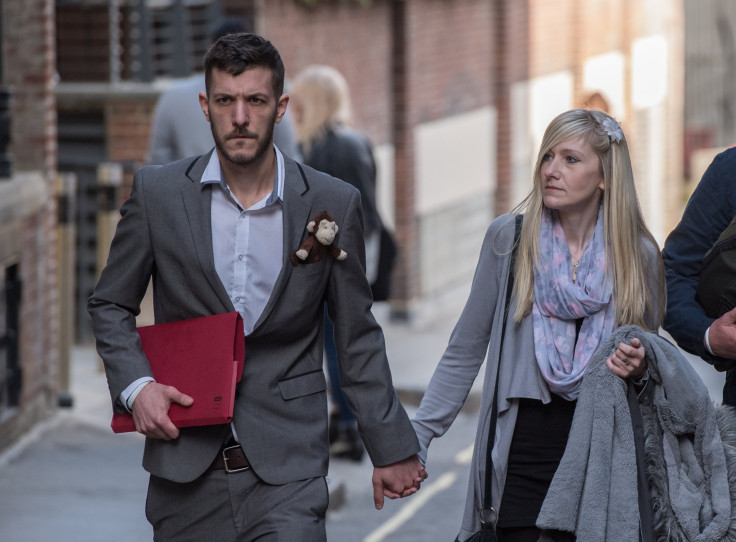Pope Francis' Stance On Charlie Gard Linked To 'Throw-Away Culture' Comment, Reiterates Pro-Life Stance

Pope Francis condemned the European Court of Human Rights' verdict on Charlie Gard, a 10-year-old who is battling a rare genetic disease called mitochondrial DNA depletion syndrome. He stated that the child’s parents should be allowed to care for their son till the end.
“The Holy Father follows with affection and commotion the situation of Charlie Gard and expresses his own closeness to his parents. He prays for them, wishing that their desire to accompany and care for their own child to the end will be respected,” Greg Burke, the pope’s spokesperson, said in a statement, Crux reported.
The pope took to Twitter to express his thoughts on the court's ruling. He wrote one should care for human life, especially when it is surrounded by illness.
To defend human life, above all when it is wounded by illness, is a duty of love that God entrusts to all.
— Pope Francis (@Pontifex) June 30, 2017
According to Crux, the pope's message aligns with his views on the "throw-away culture" that he has repeatedly referred to in the past. The pope has repeatedly denounced the “throw-away culture” that he said is currently prevalent in today’s society. The term "throw-away culture" points to the fact that everything and everyone living in the present world is considered disposable, replaceable or temporary. And people, in a bid to get their hands on the flashy and trendy things in life, tend to forego the value attached to the lives of the weak, invalid and the elderly, Our Sunday Visitor reported.
Read: Charlie Gard’s Parents Respond To Ruling Taking 10-Month-Old Off Life Support
“I would, therefore, like us all to make the serious commitment to respect and care for creation, to pay attention to every person, to combat the culture of waste and of throwing out so as to foster a culture of solidarity and encounter,” Pope Francis said in his General Audience speech at the Saint Peter's Square, Vatican City, June 5, 2013.
As a part of his pro-life agenda, the pope wished that Gard’s parents desire “to accompany and care for their own child to the end” should be respected.
The pope’s statement came almost a week after the European Court's ruled that Gard, whose illness requires him to be kept on life support 24/7, will not be allowed to go to the United States to seek experimental treatment, something that Gard’s parents were looking forward to. In order to fulfill this endeavor, the parents had also raised $2 million through donations.

The court also freed the Great Ormond Street Hospital, London, from the obligation of keeping Gard under intensive care. Gard’s life support was due to be turned off Friday but the hospital delayed their plans to do so in order to give Gard some more time with his parents.
“Today’s decision by the European court of human rights marks the end of what has been a very difficult process and our priority is to provide every possible support to Charlie’s parents as we prepare for the next steps," the hospital said in a statement, the Guardian reported. "There will be no rush by Great Ormond Street Hospital to change Charlie’s care and any future treatment plans will involve careful planning and discussion," the statement further read.
Read: Charlie Gard, 10-Month-Old Child To Be Taken Off Life-Support After Parents Lose Legal Battle In UK
Pope Francis condemned the court’s decision on Gard in a stark contrast to a statement by Archbishop Vincenzo Paglia, president of the Pontifical Academy for Life, who agreed with the court's ruling, expressing sympathy for Gard’s parents.
“We must do what advances the health of the patient, but we must also accept the limits of medicine and, as stated in paragraph 65 of the Encyclical Evangelium Vitae, avoid aggressive medical procedures that are disproportionate to any expected results or excessively burdensome to the patient or the family,” Paglia said in a statement, June 30, National Review reported.
© Copyright IBTimes 2024. All rights reserved.












